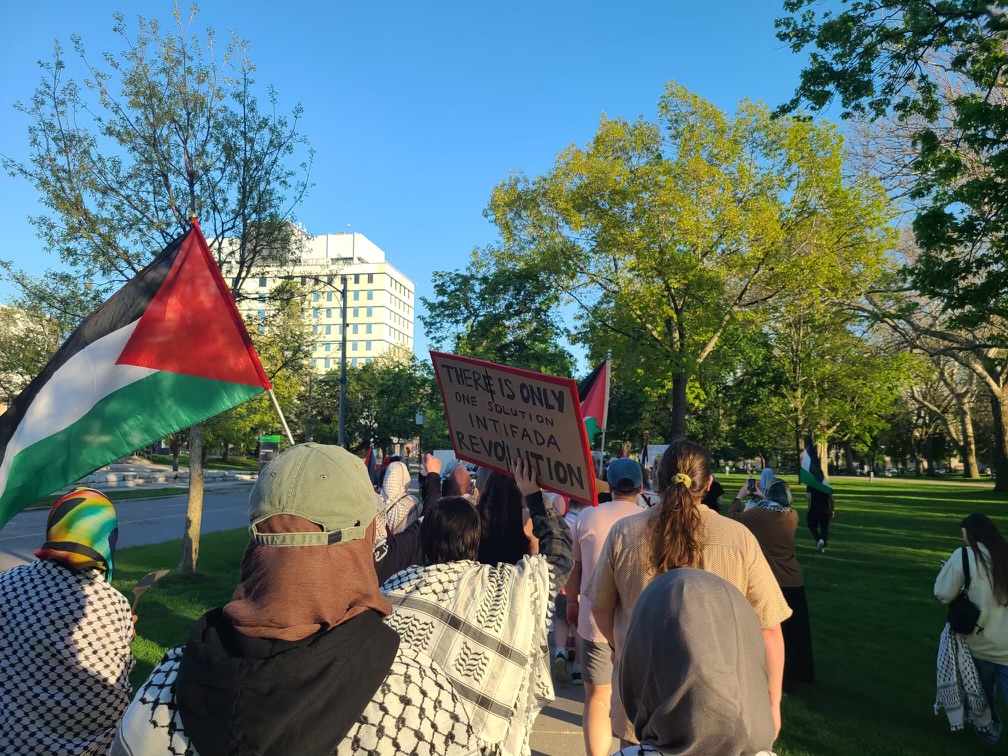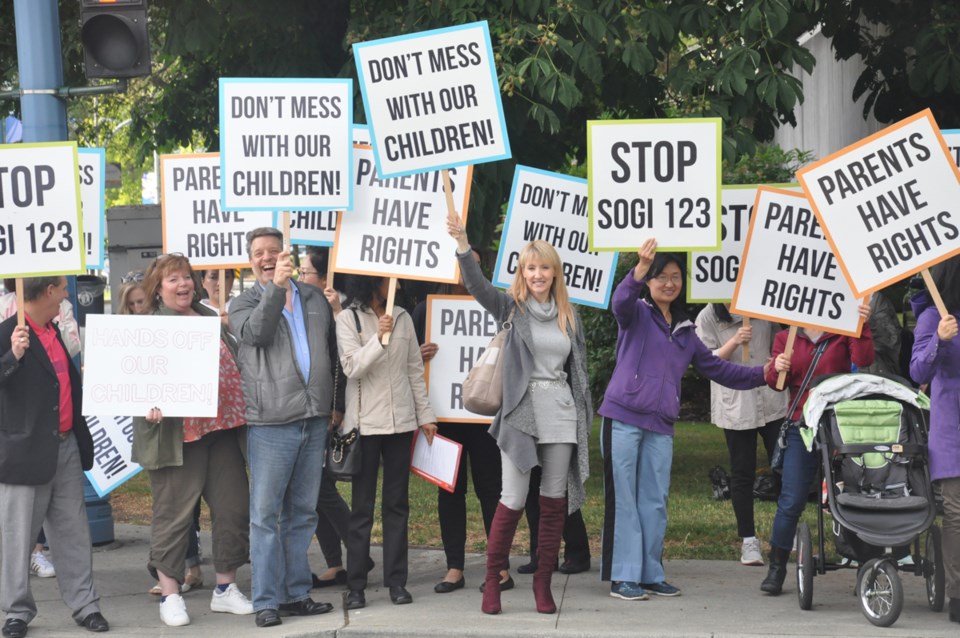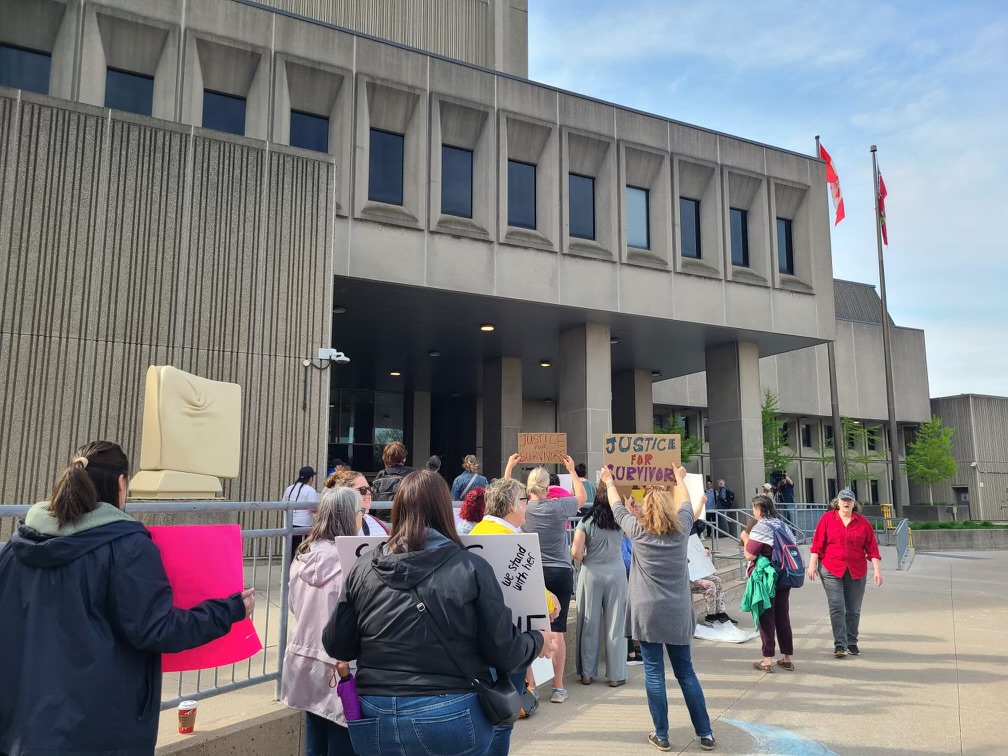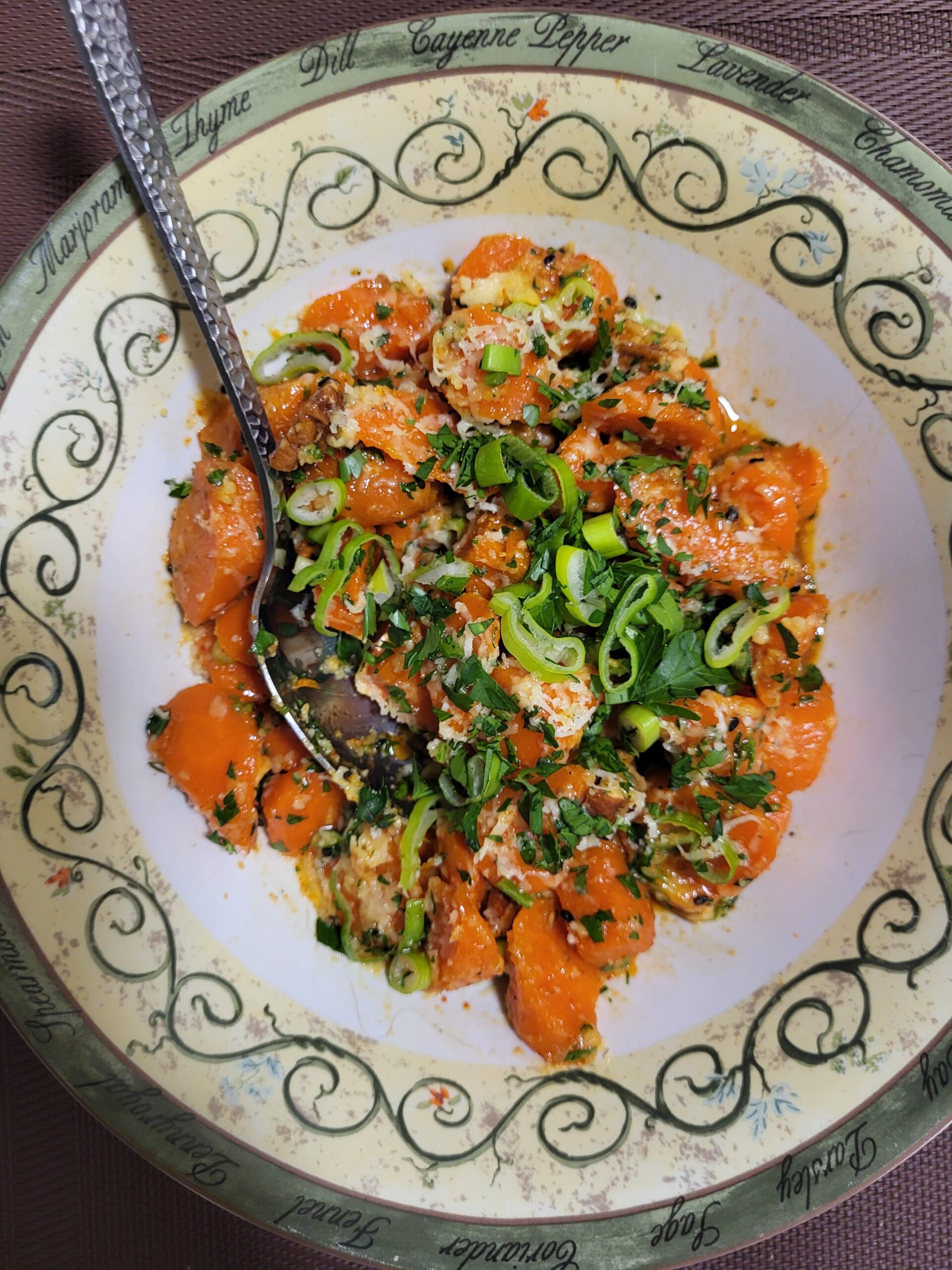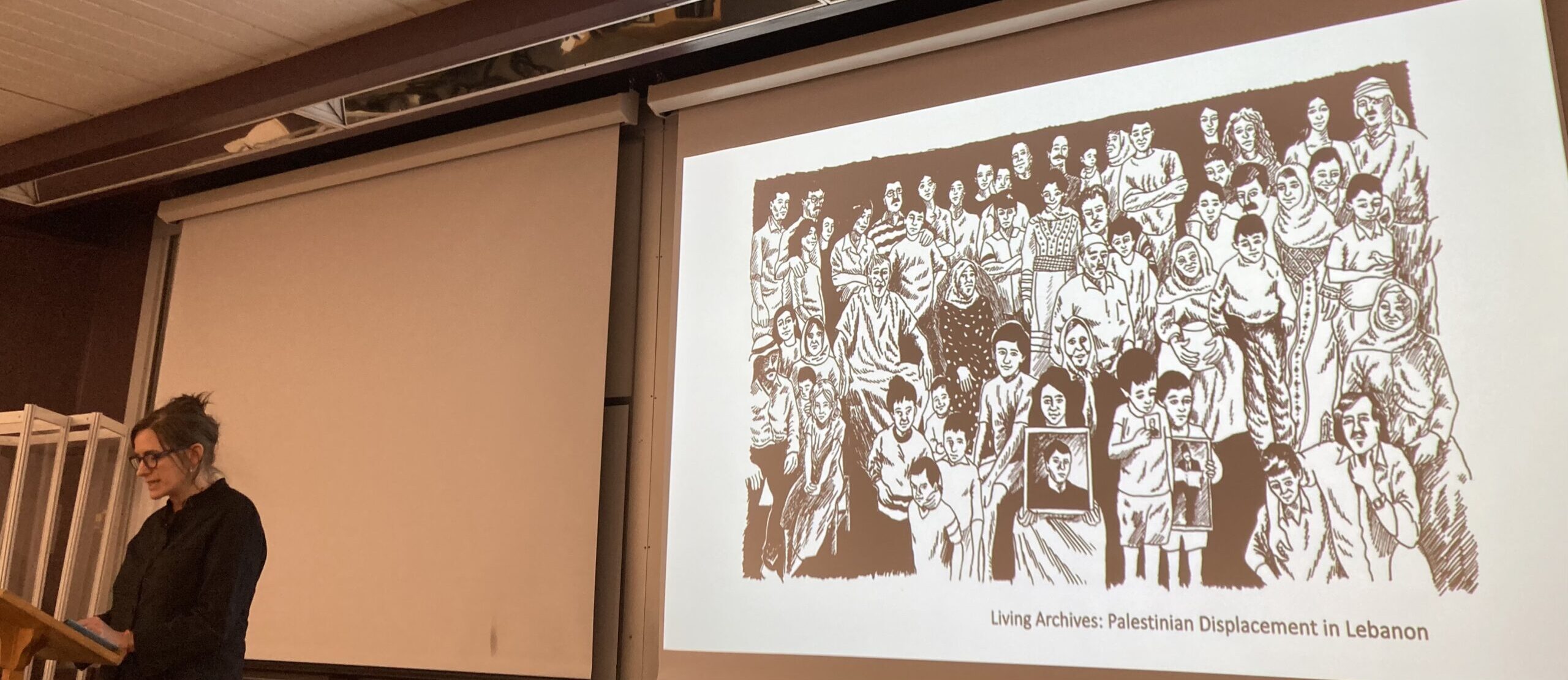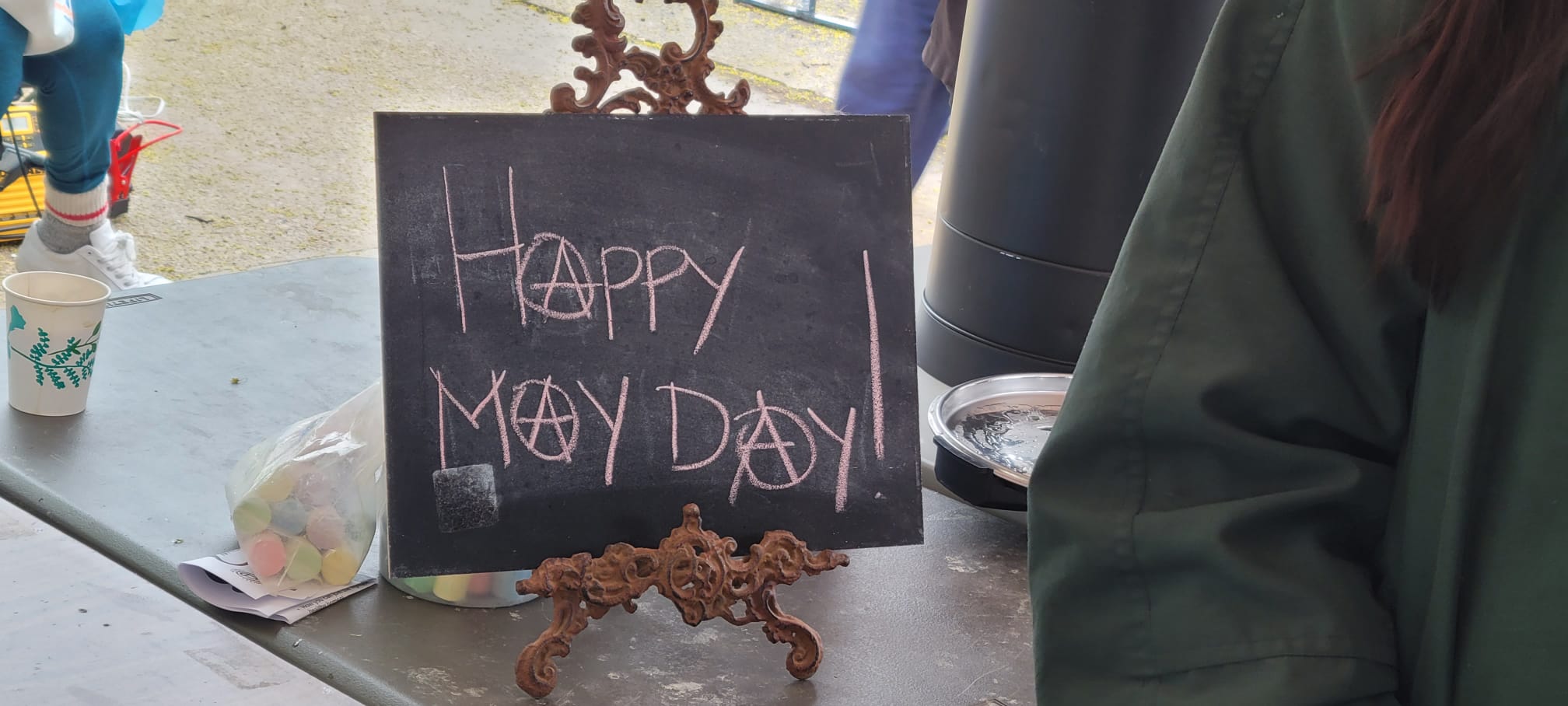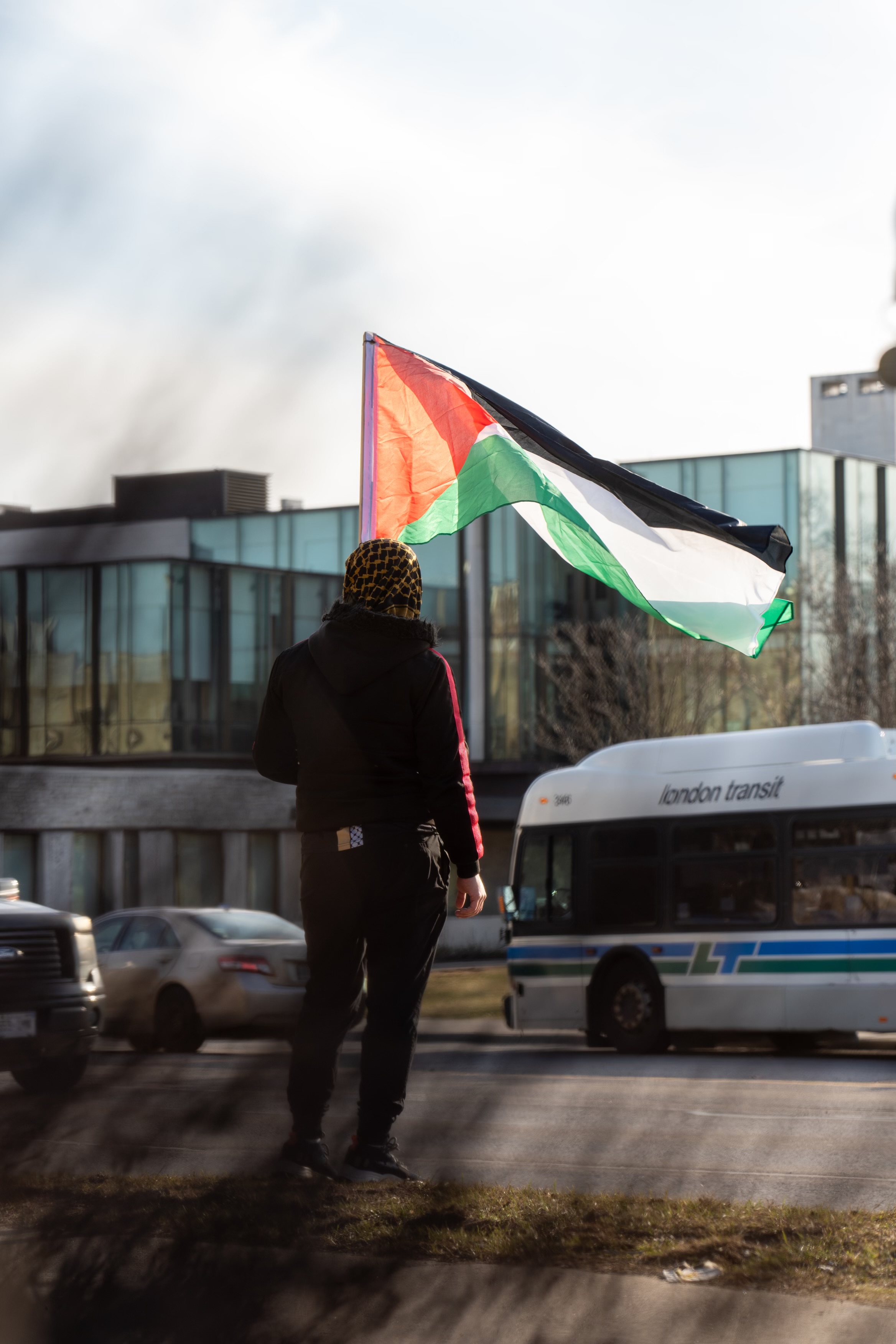“The backbone of revolution is the unity of its people”: LiberAsian London vigil
Emmanuel Akanbi
Thu November 21, 2024

On Sunday, October 20th, LiberAsian London, a local anti-imperialist pan-Asian solidarity group, held an “anti-imperialist & solidarity vigil” commemorating the lives lost to colonial violence.
The vigil opened with an acknowledgment that it was taking place on the traditional lands of the Anishinaabek, Haudenosaunee, Lūnaapéewak and Attawandaron.
“As we share our grief over our own culture’s histories of occupation, colonization, annexing and genocide by imperial powers, we see that the original caretakers of this land have been and still are colonized, genocided people, and that Indigenous sovereignty must be at the forefront of any liberation movement,” said one organizer.
They encouraged vigil attendees to both grieve and empower themselves with revolutionary optimism, attesting that revolution will bring the death of colonial empires.
The organizers listed Black, Indigenous, and other racialized people around the world who have been killed by state violence.
“Please remember that beyond those we name tonight, there are countless more whose stories do not get told – so many names missing from this very incomplete list.”
Khaliifah Ibn Rayford Daniels, also known as Marcellus Williams, was a Black Imam murdered by the state of Missouri by death penalty on September 24th despite large evidence supporting his innocence.
Nine Indigenous people — Jack Piché, Hoss Lightning Saddleback, Tammy Bateman, Jason West, Daniel Knife, Steve Dedam, Ronald Skunk, Jon Wells, and Joseph Desjarlais — were killed by Canadian police this fall.
Other victims of police brutality were 26-year-old Korean-American Victoria Lee, murdered by Fort Lee police; 19-year-old Bangladeshi Win Roasario, murdered by the NYPD; 13-year-old Karen refugee from Myanmar Nyah Mway, murdered by Utica police; 40-year old Korean-American Yong Yang, murdered by the LAPD during a mental health check-in; 28-year old Ali Ali, killed in a confrontation with the NYPD; and 22-year old William Jae Kil Nelson, killed by police in Wisconsin while suffering a manic episode.
The Armed Forces of the Philippines killed Benito Tiamzon and Wilma Austria-Tiamzon, chairman and secretary general, respectively, of the Communist Party of the Philippines; and 26-year old Filipino youth activist and bar passer Hannah Jay Cesista.
State forces in Bangladesh killed 650 Bengalis during the July uprising including 23-year old Abu Sayed, 17-year old Farhan Faiyaz, 15-year old Naima Sultana, and six-year old Riya Gop.
Israeli forces killed Hind Rajab, a six-year old girl, along with her family members as they fled Tel Al-Hawa, and the two paramedics dispatched to rescue her; 19-year old Palestinian Shaban al-Dalou, burned alive while connected to an IV drip following a strike on Al-Aqsa Martyrs Hospital complex; and Yahya Sinwar, head of Hamas’ political bureau.
The speakers emphasized that likely more than 100,000 Palestinians have been murdered in Gaza since last year, and more than 2500 Lebanese people murdered since Israeli forces launched their attack on Lebanon.
The speakers acknowledged the occupation of the Sudan, which has been reported as the largest displacement crisis in the world — exceeding 11 million people — due to a proxy war between the reportedly United Arab Emirates-funded Rapid Support Forces and their former allies and state military, the Sudanese Armed Forces. In October 2021, the two had orchestrated a military coup that overthrew the civilian transitional government and then became locked in a war for singular control of the Sudan.
The speakers acknowledged the lives lost in the crisis in the Democratic Republic of Congo which has largely been exploited by high-income countries and large businesses such as Apple that have benefitted from the extraction of its rich minerals such as cobalt, copper, tantalum, tin, tungsten, and gold.
The speakers acknowledged the violence against liberation groups in Kashmir by Indian forces.
When the list of names concluded the organizers held a moment of silence.
“We need to be allowed to grieve, we need time to stop and cry – what we are seeing should not be normal and should terrify us all.”
***
A guest speaker recited a poem by Palestinian-Egyptian writer and poet Tamim al-Barghouti titled “Resisting with Beauty”.
The poem expresses the artistic struggles of a writer and photographer in times of war, while pointing out the absurdity of seeking artistic perfection in such dire times.
///
You want to write the perfect words, but to write the perfect words, you have to be the perfect human in a perfect time. What business do you have with perfection while you are at this state that you are in? Rather, that we are in the state that we are in. Did Al-Mutanabbi not say, “I want from time what cannot grant itself”?
Writing is a hostage of time.
///
And with sincere love and respect for all, we live in a strange time. We’ve seen what people don’t usually see, just one point in history. The East is bombing Arabs, the West is bombing Arabs. The Arabs are bombing Arabs. And everyone who can’t find anything to do in the afternoon is bombing Arabs. And you’re worried about what to write? Afraid of capturing the moment? Worried about the poem’s modernity? The adequacy of imagery? Brother, those who have just escaped a siege are not worried if they look dishevelled.
///
That’s why whenever you are faced with injustice or ugliness, remember, defend yourself by inventing some beauty and take a picture of that beauty. Document it. Fix it in time. Defend it. Because every beauty is resistance.
***
A Bengali-Bangladeshi woman called Tabi* shared perspectives on the July uprising. In the span of two and a half weeks of persistent protests in the capital city of Dhaka and other major cities across Bangladesh, the country saw more than 1000 people were killed, 11,000 arrested, and more than 30,000 injured at the hands of the Bangladesh Police and the Bangladesh Armed Forces, under the authoritarian regime of Prime Minister Sheikh Hasina.
“How can a state that has seen a deadly genocide at the birth of its own nationhood sanction violence of this heightened nature against its own people in two weeks?”
Tabi recognized the July uprising as an oppressed group of people resisting oppressive measures. She urged memorial attendees to take heed and take warning.
“The July uprising in Bangladesh may seem like a dispute in a faraway land, it may seem like an isolated event worthy of glory – I want you to understand it is not.” Tabi explained. “I want us to connect our struggles across the board – our struggles are not separate because nation borders declare we are situated in different places.”
Tabi pointed out that despite the successes of the uprising, notably the ousting of Bangladesh Prime Minister Sheikh Hasina and the installation of an interim government, Indigenous people around the border of Bangladesh are still being unjustly persecuted in their land.
The Chittagong Hill Tracts are inhabited by eleven Indigenous communities, known collectively as the Jumma people. The Jumma people were victims of attacks by Bengali settlers and the Bangladesh Armed Forces from September 18-20.
On September 19, protests held in Dighinala and Khagrachari demanded justice for the victims of a recent violent settler attack on the Jumma community which saw the murder of Indigenous community member 52-year old Dhana Ranjan Chakma. Bangladesh Armed Forces fired at Indigenous protesters, injuring dozens and killing 20-year old Junan Chakma and 30-year old Rubel Tripura.
On September 20, protests held in Rangamati Sadar were met with more violent attacks by Bengali settlers and military which resulted in the vandalism of dozens of homes and shops, the murder of 18-year old Anik Kumar Chakma and the injury of more than 50 Indigenous peoples. This gruesome attack also saw the arson of Chittagong Hill Tracts Regional Council offices and the district office of the Parbatya Chattagram Jana Samhati Samity; a Bhuddist temple in the area was vandalized and looted.
“The struggle for Bangladesh is an ongoing one [and] I believe liberation will come. Not just for Bangladesh, but it will come in Palestine, in Turtle Island, in Kashmir, in Sudan, in every oppressed space in our globe.”
Tabi ended her speech with a poem from Khudiram Bose, a freedom fighter from West Bengal whose opposition to the British Raj led to his execution.
Fight. Tell me if you can’t fight. If you can’t say it, write it. If you can’t write it, then go along. If you can’t go along to support them, at least encourage those who are doing them. If you can’t do that either, don’t discourage the one who can because he is fighting for your share.
***
The next speaker was Rei, a representative of the Canada Philippine Solidarity Organization (CPSO), an organization of Filipinos and non-FIlipinos living in Canada who stand together in solidarity with the Filipino movement for national liberation and democracy with a socialist perspective.
“As a solidarity organization, we recognize the necessity of learning from and supporting people’s anti-imperialist struggles everywhere to create a more peaceful, just and democratic world.” said Rei.
Rei acknowledged the long tradition of anti-imperialist struggle that exists in the Philippines, from the fight to gain independence from colonial Spain to its struggles of fighting US neo-colonialism today.
“The Philippines is rich, but the people are poor.”
Largely due to American interests, the Philippines has been kept in an under-industrialised, semi-feudal condition since its independence following a 40 year long occupation from the United States Spain. Low wages are the norm and people are forced to rely on foreign capital and manufacturing which has resulted in an economy that is dependent on exporting raw materials.
The armed struggle against imperialism in the Philippines is currently embodied by the New People’s Army (NPA). It has been “red-tagged” by the Philippine’s government, effectively labelling individuals and organizations as “communists” to justify the state conducting heavy surveillance, seizure of assets, and outright assassination of those who dissent.
Rei explained that despite the labelling of the NPA as communists and terrorists, the NPA militants have gained support from Filipino citizens due to their involvement in the community providing medical services, education, and social assistance programs.
“The Filipino people have a legal right to resist ongoing state terror by means that include armed struggle.”
Rei drew parallels to the struggles faced by pro-Palestinian activists worldwide who are subject to anti-terrorism laws meant to stifle dissent.
“This parallel underscores a global pattern of using anti-terrorism rhetoric to undermine genuine movements for liberation and human rights.” He explicitly called out the terrorist designation of Samidoun, the Palestinian Prisoner Solidarity Network, by Canadian and American governments.
“This sets the precedent that we cannot accept – we must stand up [to] oppose the expansion of the anti-terror apparatus and the criminalization of our social movements.”
Rei concluded with an idiom written by Chinese revolutionary, Chairman Mao Zedong.
To die for the people is weightier than Mount Tai, but to work for the fascists and die for the exploiters and oppressors is lighter than a feather.
***
The next speaker was Justin Dela Cruz, a Filipino man living in London.
Dela Cruz opened his speech recounting recent police killings of Asians across North America. He tells the story of Filipino-American navy veteran Angelo Quinto who was brutally murdered by the LAPD during a wellness check, and the story of 13-year old Nyah Mway, a refugee from Myanmar who was assaulted and subsequently shot in the chest by the NYPD after his toy BB gun was mistaken for a weapon.
“These deaths, they are painful and tragic, but we must recognize that they are part of a larger, more sinister pattern,” said Dela Cruz. “It is violence upheld and reinforced by a system that devalues our lives and sees [our] communities as threats or insignificant parties rather than human beings.”
Dela Cruz pointed out the connections between the murders of Asians in North America and the broader systems that contribute to minorities and marginalized groups being targeted and killed across the globe.
“These killings of our brothers and sisters here are tied to the same forces that enact genocide in Palestine, [that] militarized the police in nations like the Philippines, leading to the murder of activists and journalists, [that] allow and participate in the slayings of Black Americans, as well as the systemic violence and neglect forced on Indigenous people in Canada.”
Dela Cruz believes that this systemic violence seeks to suppress and silence those who stand in the way of the status quo. He makes connections between the growing homelessness crisis, the deepening issues of drug abuse, and the increased violence in communities; they are facets of a system that prioritizes profit and power over its people.
“We are struggling, each of us in different ways, but we are isolated form one another – we’re cut off from understanding that we share a common struggle.”
Like Rei, Dela Cruz criticized the Canadian state for labelling organizations and individuals terrorists for expressing solidarity with the people of Palestine. He notes that the government is quick to silence those voices while dragging its feet when it comes to addressing issues in Canada, such as the travesty of missing and murdered indigenous women, the increased cost of living, and growing inequality.
“The state treats these problems as something to be cleaned up, swept under the rug, rather than issues that demand real, systemic change – meanwhile we are being led to believe that the reason for our [economic] hardships is other marginalized groups.”
Justin sees the actions of the Canadian state as a reason to unite, rather than to divide and blame other marginalized groups.
“We may not be able to fight every battle, but we can stand in solidarity with each other, and we can build collectives that address the unique needs of our communities.”
***
The vigil concluded with the organizers putting out a call to action.
“As we close this vigil, we encourage each of you to continue to fight. Tomorrow, and the day after, and the day after that. We call upon your love. Your grief. Your righteous anger and your compassion.”
They urged attendees to study the works of revolutionairies, like George Jackson, Chairman Mao, Leila Khalid, Ho Chi Minh, and Che Guevara and to further build community with neighbours in efforts to organize and mobilize towards collective freedom.
“The backbone of revolution is the unity of its people. The trust, solidarity, and love that we nurture every time we show up for one another, in ways both big and small.”
As the vigil ended, attendees were encouraged to stay and discuss further actions that could be taken in the community. Organizers handed out primer zines relating to pro-active resistance measures.
“We being the most complicit living in the imperial core, are responsible for building community power by trusting and supporting each other; studying and discussing together; planning and organizing together; and executing actions that disrupt.”
“Thank you again for your presence here tonight and may we all see a free world in our lifetime.”
For more information about LiberAsian, attendees were encouraged to follow the organization on Instagram @ LiberasianLDN.
*Tabi is a pseudonym selected by the speaker , who would like to be kept anonymous
